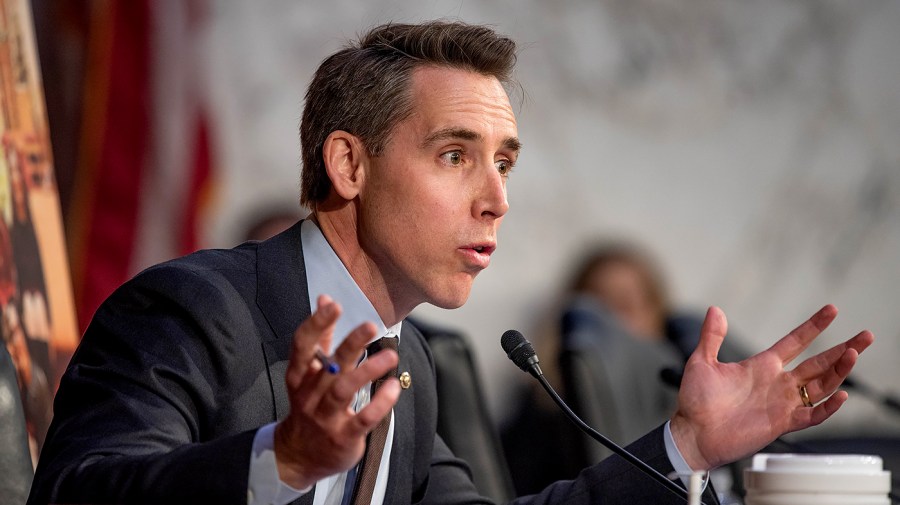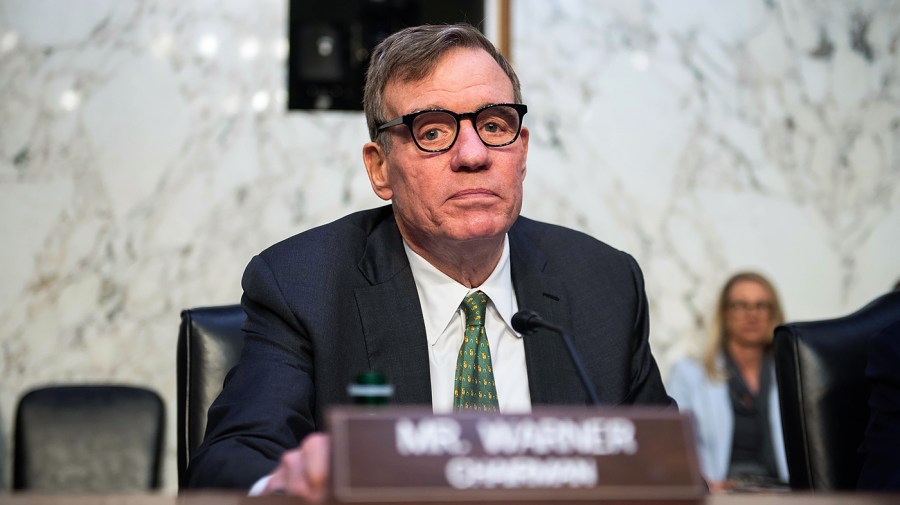Biden’s latest move against TikTok raises questions about ban, owner sale
President Biden’s administration is ramping up pressure against the popular video sharing app TikTok, threatening to ban the app if the Chinese-based ByteDance doesn’t sell its stake.
The demand, confirmed by TikTok late Wednesday, marks the latest escalation in U.S. governmental pressure on the company. It has been facing increasing criticism from both sides of the aisle that it is a potential security risk because of its ties to China.
TikTok’s CEO Shou Zi Chew, who is scheduled to testify before a House panel next week, said divesting wouldn’t solve any security concerns and the company has doubled down on its ongoing plans to monitor and separately store U.S.-user data instead.
“Divestment doesn’t solve the problem: a change in ownership would not impose any new restrictions on data flows or access,” Chew said in a recent interview with The Wall Street Journal.
Chew declined to comment whether ByteDance would be open to selling the app to an American company.
What is the likelihood of a TikTok sale?
Hannah Kelley, a research assistant in the technology and national security program at the Center for a New American Security, said she doesn’t believe that ByteDance will agree to divest from TikTok.
“This has been the sticking point in CFIUS negotiations for over two years now, how to mitigate the identified U.S. national security concerns, especially regarding data flows and access, short of full divestment,” Kelley said, referring to the Committee on Foreign Investment in the United States.
GOP enters the fray: House Republicans advance TikTok ban along party lines
“I think Washington has decided that Project Texas, or the re-routing of U.S. user data through Oracle cloud servers, won’t be enough to satisfy its security concerns, especially as the company has consistently struggled to maintain trust with the U.S. government given a steady stream of leaks and reports of data mishandling or misuse,” she added.
However, Cyrus Walker, the founder and managing principal at cybersecurity firm Data Defenders, said a sale of the app could happen. But it would depend on whether there was a trade off that the Chinese government would be interested in.
“What is the U.S. willing to give up in return beyond the price of the sale of the app?” Cyrus said.
Wedbush analysts Dan Ives, Taz Koujalgi, John Katisingris and Steven Wahrhaftig wrote in a research note that they think a spin-off of TikTok from ByteDance is “very unlikely” and that a sale would be “very complex with many restrictions likely on the docket.”
Who stands to benefit from a TikTok ban?

Facebook’s Meta logo on a sign at the company headquarters on Oct. 28, 2021, in Menlo Park, Calif. (AP Photo/Tony Avelar, File)
If the pressure campaign does end with TikTok getting banned, the Wedbush analysts said that U.S. tech companies, including Meta, the parent company of Facebook and Instagram, and Snapchat, stand to benefit.
In recent years, American-based social media companies have launched features that mimic TikTok’s signature vertical, full-screen video feed. Snapchat launched a feature called Spotlight that lets users discover videos in the format, and Instagram did the same through Reels.
Meta, which struggled with a dip in revenue last year for the first time after an astronomical rise over the last decade, has been shifting to focus more on recommended content and video content — a model more in line with TikTok’s discoverability functions.
Pressure builds: Anti-TikTok pressure is bipartisan and mounting in Congress
Meta’s stock increased more than 3 percent on Thursday, amid the news of the Biden administration’s threat over TikTok.
The analysts said a ban would also “significantly increase” tensions between the U.S. and China with a “brewing Cold Tech War playing out across the software and chip ecosystem” and investors keeping a close watch, the analysts said.
“This is all a game of high stakes poker and clearly the Beltway is putting more pressure on ByteDance to strategically sell this key asset in a major move that could have significant ripple impacts,” the Wedbush analysts said in a report.
Why is a TikTok ban or sale being discussed?

Sen. Josh Hawley (R-Mo.) questions Attorney General Merrick Garland during a Senate Judiciary Committee oversight hearing of the Department Justice on Wednesday, March 1, 2023. (Annabelle Gordon)
Pressure has been building over how TikTok operates in the U.S. for years, spanning two administrations.
Under former President Trump, the administration issued executive orders to ban downloads of the app in the U.S., but they were withdrawn by Biden.
Instead, in June 2021 Biden ordered a CFIUS review of the app.
As the administration seems to weigh a course of action, Congress has also put forward proposals aimed at targeting TikTok. Last year, a proposal led by Sen. Josh Hawley (R-Mo.) to ban TikTok on government devices was passed as part of an omnibus bill and signed into law.
Several states have taken similar courses of action, including Texas, Maryland, New Jersey and Ohio.
Read related: Senators introduce bipartisan bill to give president power to ban TikTok, other tech
Other proposals to ban TikTok more broadly have also emerged. A bill that more singularly targets TikTok, led by House Foreign Affairs Committee Chair Michael McCaul (R-Texas), advanced out of the committee in a party-line 24-16 vote earlier this month.
McCaul’s bill faces an unlikely path toward passage in a split Congress without Democratic support.
A bipartisan bill introduced last week by Sens. Mark Warner (D-Va.) and John Thune (R-S.D.), known as the RESTRICT Act, may fare better. The bipartisan bill doesn’t target TikTok explicitly, but would give the federal government more power to regulate or ultimately ban technology linked to foreign adversaries.
In addition to China, the proposal calls for the Commerce Department to identify and mitigate risks posed by technology linked to North Korea, Iran, Russia, Cuba and Venezuela.
The Restrict Act is also supported by the White House.
“Aside from developments within the CFIUS process itself, I think bipartisan support for the Restrict Act, which would allow the U.S. government to restrict and even ban foreign technologies on the basis of national security, may have helped move the needle,” Kelley said.
She added that rising tensions between the U.S. and China over recent export control restrictions and Chinese spy balloons may have influenced this decision.
“The existential threat that China poses to the United States goes far beyond TikTok, spanning across the political, economic, and military domains,” she said. “I think all of this comes into play when considering an app so closely tied to the PRC [People’s Republic of China].”
Can TikTok be ousted? TikTok bans on government devices raise questions about platform’s future

Chairman Sen. Mark Warner (D-Va.) at the Senate Intelligence Committee meeting to discuss worldwide threats in Washington, D.C. on Wednesday, March 8, 2023. (Annabelle Gordon)
What happens if ByteDance sells TikTok
Walker said if TikTok is sold to an American company it would “at least remove the immediate threat of the Chinese government being able to get access” to American data.
He added that “if the app was sold off, it would be prudent for the new owner to conduct a top to bottom review of the app’s code to verify that no ‘backdoors’ exist in the app.”
Copyright 2023 Nexstar Media Inc. All rights reserved. This material may not be published, broadcast, rewritten, or redistributed. Regular the hill posts







